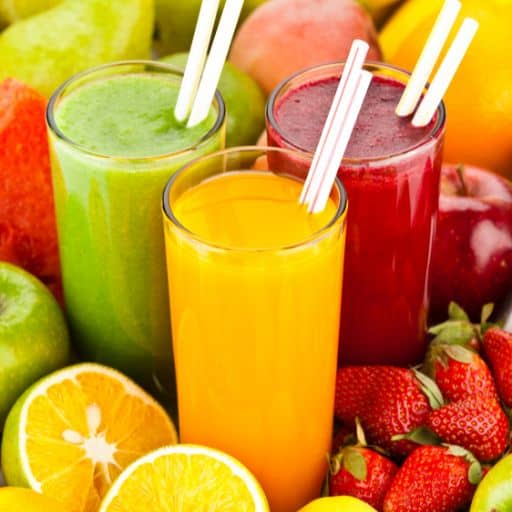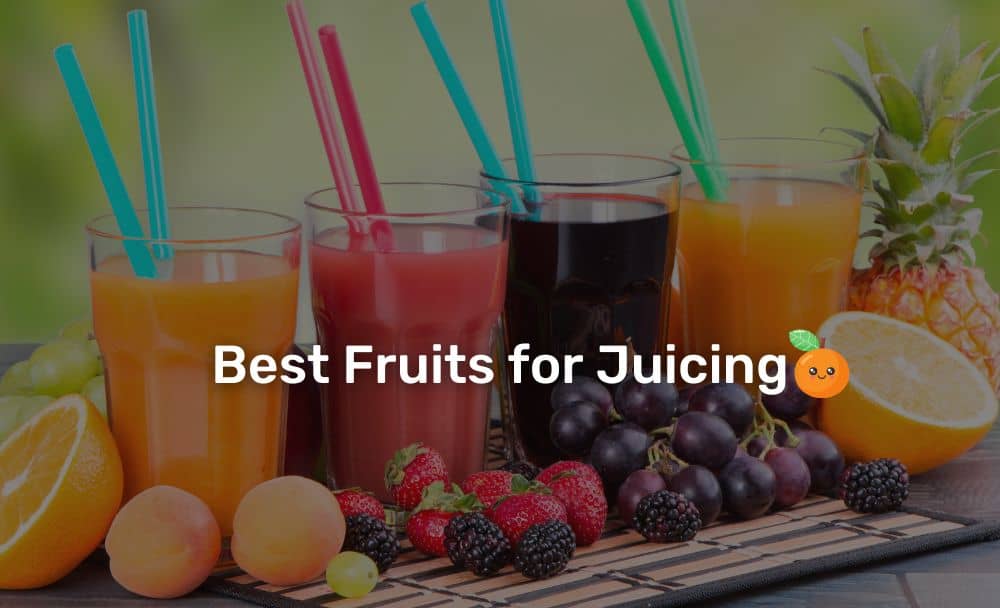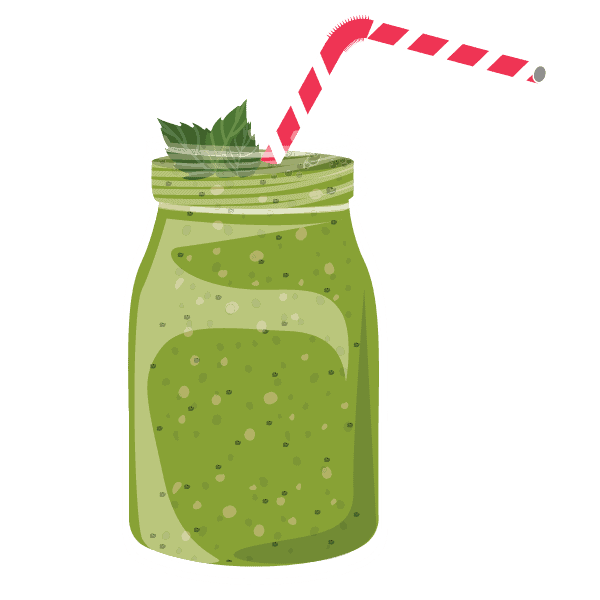If you want to enjoy fresh juice every day, knowing the best fruits for juicing is essential to ensure your creations are both delicious and nutritious.
Juicing is an incredible way to pack all your daily servings of fruits and vegetables into one delicious glass. You can enjoy a substantial dose of vitamins and minerals without consuming copious produce. It’s also super convenient and quick. However, the secret to a truly scrumptious and nourishing juice lies in your chosen fruits.
The fruit selection determines the health benefits and flavor of your juice. With so many options, selecting the right fruit can make all the difference. Some fruits offer more vitamins, while others add natural sweetness or tanginess to enhance juice recipes.
In this article, we’ll explore the best fruits for juicing and why they’re excellent choices for your daily juice fix!
What Are the Best Fruits for Juicing?
Embarking on a juicing journey is like strolling through a flavorful, succulent fruit orchard. You’ll encounter popular juicing favorites like apples, oranges, grapefruit, lemons, and limes as you begin.
However, the world of juicing extends far beyond these classics, with tropical gems like pineapple and mango or tart berries such as cranberries and blueberries.
You can even experiment with lesser-known fruits like starfruit or pomegranate for a creative twist. Freshly squeezed pomegranate juice is rich in vitamins C, K, and various B vitamins, as well as potent antioxidants and other essential nutrients.
You’re guaranteed a tasty adventure no matter which fruits you incorporate into your juice recipes. With many flavors, the fun lies in trying different combinations!
Regarding juicing, the best fruits for the task are those rich in nutrients while offering a delicious taste. Consider these fruits when creating your own juice recipes:
- Apples: A fantastic source of antioxidants, and vitamins A, complex B vitamins, vitamin C, and vitamin K. The sweet flavor of apple juice complements other fruits nicely.
- Pears: Pears contain antioxidants that may help reduce inflammation. You’ll also find vitamin C, vitamin A, Vitamin K, and a range of B vitamins.
- Berries: Blueberries, raspberries, strawberries, and blackberries all make tasty juice recipe additions. They’re low in sugar and high in vitamin K and minerals. Cranberry juice is another one to consider for impressive health benefits, including vitamins, potassium, calcium, magnesium, phosphorus, and high levels of antioxidants and phytonutrients.
- Citrus Fruits: Oranges, lemons, limes, and grapefruits add a pleasant acidic flavor to juices. They’re also packed with vitamin C, which boosts immunity.
- Melons: Watermelon, cantaloupe, and honeydew melon are all deliciously juicy and hydrating, thanks to their high water content. Melons also contain vitamin C, vitamin B6, vitamin A, and K.
The Sugar Content of Fruit Juice
Here’s a table of common fruits used for juicing, listed from highest to lowest sugar content. These values are approximate and can vary depending on ripeness and growing conditions. The sugar content is measured in grams per 100 grams of fruit.
| Fruit | Sugar Content (g per 100g) |
|---|---|
| Dates | 63.0 |
| Figs | 47.9 |
| Prunes | 38.1 |
| Grapes | 16.3 |
| Mango | 13.7 |
| Cherries | 12.8 |
| Apples | 10.4 |
| Pineapple | 9.9 |
| Plums | 9.9 |
| Kiwi | 9.0 |
| Pears | 9.8 |
| Blueberries | 9.7 |
| Oranges | 9.4 |
| Peaches | 8.4 |
| Cantaloupe | 7.9 |
| Strawberries | 7.7 |
| Grapefruit | 6.9 |
| Watermelon | 6.2 |
| Papaya | 5.9 |
| Blackberries | 4.9 |
| Raspberries | 4.4 |
| Cranberries | 4.0 |
| Lemon | 2.5 |
| Lime | 1.7 |
Comparatively, here’s a table of common green vegetables used for juicing, listed with their approximate sugar content. These values are measured in grams per 100 grams of vegetable.
| Vegetable | Sugar Content (g per 100g) |
|---|---|
| Carrot | 4.7 |
| Cabbage | 3.2 |
| Tomato | 2.6 |
| Zucchini | 2.5 |
| Green Bell Pepper | 2.4 |
| Arugula | 2.1 |
| Swiss Chard | 1.9 |
| Cucumber | 1.7 |
| Broccoli | 1.7 |
| Ginger | 1.7 |
| Celery | 1.3 |
| Kale | 1.3 |
| Romaine Lettuce | 1.2 |
| Collard Greens | 0.5 |
| Spinach | 0.4 |
As you can see, leafy green vegetables have a much lower sugar content than most fruits, making them an excellent option for combining with fruit to get extra nutrients and reduce your overall sugar intake. The sweetness of the fruits balances out the earthiness of the greens, which, if you are new to juicing, can be quite a shock of flavor.
Here are some excellent fruit and vegetable juice combinations:
| Fruits | Vegetables |
|---|---|
| Apple | Celery |
| Carrot | Beetroot |
| Pear | Spinach |
| Orange | Kale |
These are just a few examples of the combinations you can try when juicing. Start with something simple, like apple and celery juice, or get creative with carrot and beetroot. Try pear, spinach, or orange juice mixed with kale for a more substantial juice. The possibilities are endless!
Choosing Fruits for Juicing: Things to Consider
When it comes to juicing, there are a few things to consider before you start buying any fruits.
Choosing the correct type of fruit for your needs is essential. Different types of fruits can provide different benefits and flavors. For example, citrus fruits like lemons, grapefruits, and limes can add a tart flavor to your juice, while apples and pears taste sweeter.
Pay attention to the ripeness of the fruit you use. Fruits that are overly ripe or too underripe can significantly change the flavor and texture of your juice.
Consider cost when choosing which fruits to buy for juicing. Some types of fruit can be more expensive, depending on where they are sourced and what time of year they are in season. If cost is an issue, try looking for seasonal local produce, often cheaper than store-bought produce.
Look out for deals, such as juicing carrots or oddly shaped fruit. You can often get these at discounted prices simply because they aren’t perfectly presented. Rest assured; the nutrients are still there.
Potential Side Effects of Excessive Juicing
As discussed earlier, there are many considerations when choosing fruits for juicing. However, it’s important to remember that too much of a good thing can be bad. Excessive juicing can potentially lead to adverse side effects.
The lack of dietary fiber can cause constipation. When you juice fruits and vegetables, you remove all the beneficial fiber in whole fruits and vegetables.
Without enough dietary fiber, it can be difficult for your body to absorb essential vitamins and minerals from the juice.
Second, drinking too much juice can increase the risk of developing health problems such as diabetes or heart disease. Juice contains high amounts of sugar, which can cause spikes in blood sugar levels if consumed excessively.
Also, drinking too much juice could make it harder to lose weight due to its high-calorie content.
It’s important to remember that while juicing is a great way to get more nutrients into your diet, it should not replace eating whole fruits and vegetables in order to get all their beneficial compounds and fiber content.
Frequently Asked Questions

What is the Difference Between Juicing and Blending?
Juicing extracts juice from veggie and fruit combinations while blending combines them. The difference lies in the amount of fiber retained. Juicing removes some of the fiber content, but blending keeps all of it intact.
How Long Can Freshly Made Juice Be Stored?
Freshly-pressed juice should be consumed immediately in order to maximize its nutritional value. However, any freshly-made juice can last up to 48 hours in a refrigerator if stored correctly. To store your juice correctly, ensure it’s stored in airtight glass jars or bottles with minimal air space. You should keep the temperature at 40°F (4°C) or lower.
Is Juicing Better Than Eating The Whole Fruit?
People often ask if juicing is better than eating whole fruit. It depends on what you’re looking to get out of your diet. Juicing can be a great way to get more fresh fruit and vegetables into your diet without eating a whole plate daily. Here are a few benefits that I’ve found from juicing:
- You can get an extra serving of fruits and vegetables in a single glass of juice.
- You can create tasty combinations of ingredients you may not have tried before.
- You can increase the nutrient density of your juice by adding superfoods like spirulina or chia seeds.
What are the best fruits for a juice cleanse?
A juice cleanse typically involves consuming only fruit and vegetable juices for a short period, usually from a few days to a week. The goal is detoxifying the body, resetting the digestive system, and promoting overall health. When selecting fruits for a juice cleanse, choosing nutrient-dense and low-sugar is essential. Here are some great fruits to include in a juice cleanse:
- Green apples: Lower in sugar than other apples, green apples add sweetness and nutrients without causing significant spikes in blood sugar levels.
- Lemons: Rich in vitamin C and antioxidants, lemon juice helps cleanse the liver and promote digestion.
- Limes: Similar to lemons, limes are packed with vitamin C and can help with detoxification.
- Grapefruit: Known for its fat-burning properties, it is an excellent addition to a cleanse due to its high vitamin C content and metabolism-boosting properties.
- Blueberries are an excellent choice for a juice cleanse. They are high in antioxidants and low in sugar.
- Raspberries: These berries are high in fiber, vitamins, and antioxidants, making them a great addition to your cleanse.
- Blackberries: Like other berries, blackberries are low in sugar, nutrients, and antioxidants.
- Strawberries: Although they contain slightly more sugar than other berries, strawberries are still a nutrient-rich option for a juice cleanse.
- Kiwifruit: Kiwifruit is high in vitamin C, fiber, and other nutrients that can support a cleanse.
- Pineapple: While pineapple is higher in sugar than other fruits on this list, it contains bromelain, an enzyme that aids digestion and has anti-inflammatory properties.
In addition to these fruits, including a variety of leafy greens and other vegetables in your juice cleanse is essential. Vegetables like kale, spinach, cucumber juice, celery juice, and beetroot juice can provide essential nutrients and help support detoxification.
Remember to consult with a healthcare professional before starting a juice cleanse, especially if you have any pre-existing health conditions or concerns.


